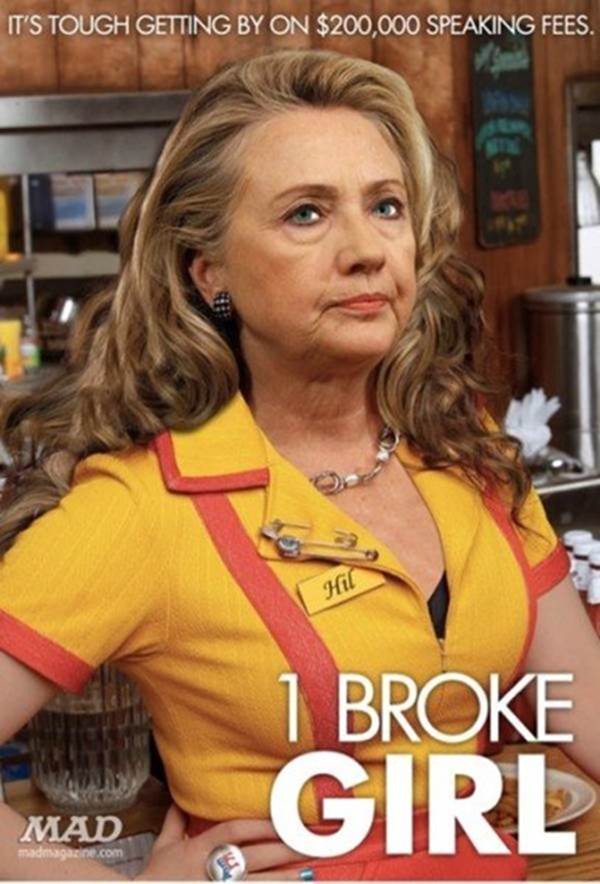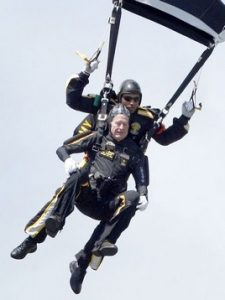Democratic Party activists and leading pundits have of late begun speculating whether Hillary Clinton’s wealth might prove to be an obstacle to her presidential aspirations. But history suggests their concerns are misplaced. The problem is not that Hillary’s too rich. It’s that she’s not rich enough – at least not rich enough to achieve presidential greatness!
As Clinton understands, a major drawback to being the front-runner for your party’s presidential nomination, with no clear rivals in sight, is that the media has no one else to talk about. Journalists, of course, view their mission as speaking truth to power and, not incidentally, they also have a strong preference for a competitive presidential nominating race. For this reason, they have spent considerable time of late, aided by issue activists and other party players, probing for weaknesses in Clinton’s candidacy. This is part of the candidate vetting process that Marty Cohen et al describe in their The Party Decides. Part of that vetting involves testing possible negative campaign frames to see which ones might have legs on the campaign trail. So far the vetters have discussed Benghazi against the backdrop of Clinton’s record as Secretary of State, her evolving views on gay marriage and, most recently, her personal wealth. The wealth issue was triggered by Clinton’s statement, at the start of her recent book tour, that she and her husband were “dead broke” when they left the White House. Critics immediately pounced, noting that given her $200,000 speaking fees and current net worth hovering at an estimated $15 million, the comments made her seem out of touch with ordinary Americans. More enticing still, pundits speculated that her wealth made her vulnerable to a challenge from a populist candidate (Elizabeth Warren, anyone?) who was not perceived to be so closely tied to Wall St. and the “1 percent”. (See also here and here.)
What are we to make of this effort to characterize Hillary as the poor-woman’s Mitt Romney – a plutocrat out of touch with the average American? History suggests Hillary’s critics are drawing the wrong lesson. Let’s face it – to paraphrase Ernest Hemingway (perhaps apocryphally) paraphrasing F. Scott Fitzgerald, “Presidents are different from you and me. They have more money.” Lots more, in fact. You don’t find very many presidents who were not men of considerable means when they took office.
Interestingly, the wealthier the President, the more likely he (someday she) will be considered one of the greater presidents, based on evaluations by historians and political scientists. (In previous posts I’ve discussed some of the problems with presidential rankings, so I won’t belabor the point here.) Consider the presidents typically ranked as the nation’s greatest: Lincoln, Washington, FDR, Jefferson and Teddy Roosevelt. With the exception of Lincoln (and who knows where he would be ranked had he served out his second term) all took office possessing great personal wealth – in fact, they are among the wealthiest of all the presidents. Washington ranks second in net worth, just behind JFK. Jefferson is third (although he was mired in debt in his post-presidential years), and TR fourth. Even FDR, the poorest among them at a wealth ranking of only nine (again, excluding Lincoln) based on an estimated net worth in current dollars of $60 million, has 4 times Clinton’s fortune. All told, at least 17 presidents outrank Hillary in personal wealth and these include some of the highest ranked presidents, including Jackson (ranked 8), Kennedy (11), Adams (12), Madison (13), LBJ (14) and Monroe (15). Indeed, if you control for the usual suspects (death in office, scandal, whether the nation is at war, and if the president won reelection), wealth is a statistically significant predictor of a president’s historical ranking (although I wouldn’t put too much stock in the coefficient)!
Now, to anticipate the expressions of outrage that are sure to flow into my comments section, I am in fact deeply skeptical that there’s any direct link between wealth and presidential greatness, regression results notwithstanding (although I don’t rule out the possibility!) My point is simply that there’s nothing in the historical record that says being wealthy should disqualify you from holding the nation’s highest office.
Indeed, I think that rather than shy away from publicizing her wealth, Hillary should embrace it. Think of the possible slogans!
Hillary Clinton. She’s not a….er…..witch. She’s just rich.
But is she rich enough to be in the “10 percent” of great presidents?
[Update: 12:08. And now the New York Times piles on by analyzing Chelsea’s speaking fees!]
Meanwhile, Mad magazine has some fun at Hillary’s expense (hat tip to Shelly Sloan):



